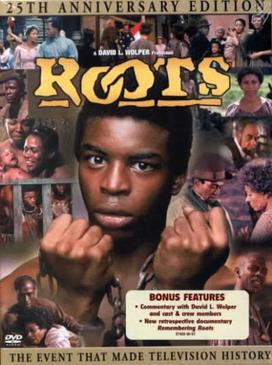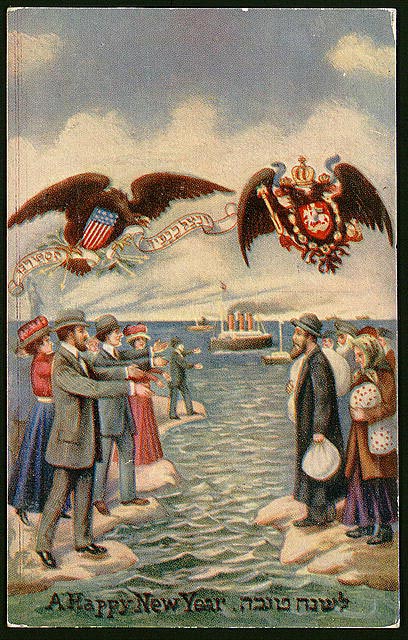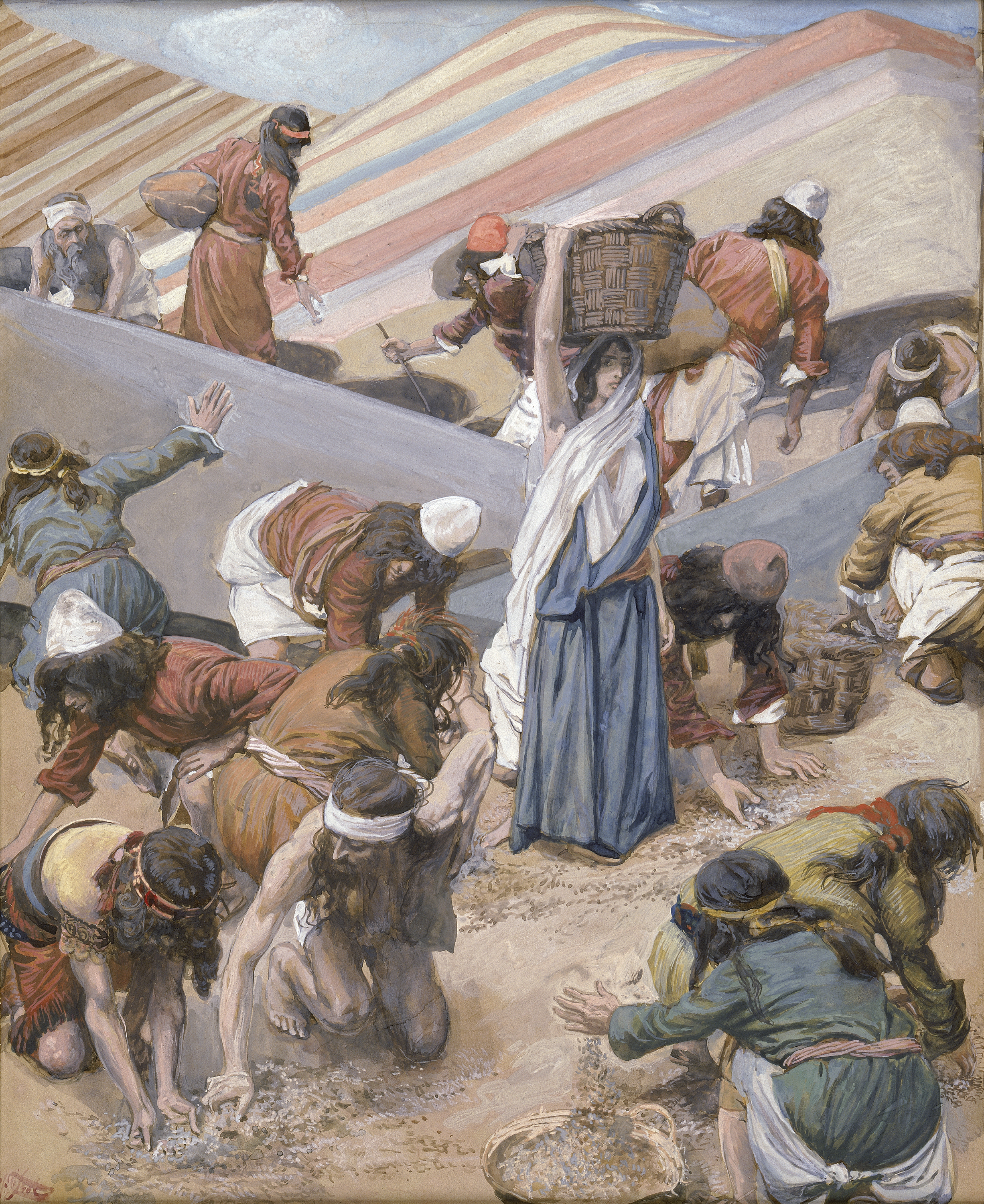
Hasidic Jews performing tashlikh on Rosh Hashanah…
Rosh Hashanah – popularly known as the “Jewish New Year” – began at sundown on Wednesday, September 24, and ended at sundown on Thursday, September 25.
It’s different from the traditional American New Year in that it’s not about a “midnight drinking bash and daytime football game.” But it is alike in that it too is a time “to plan a better life” and to make resolutions. In other words, it too is “a time to begin introspection, looking back at the mistakes of the past year and planning the changes to make in the new year.”
Another popular practice of the holiday is Tashlikh (“casting off”) [as shown in the painting above]. We walk to flowing water, such as a creek or river, on the afternoon of the first day and empty our pockets into the river, symbolically casting off our sins…
See Judaism 101: Rosh Hashanah. Or as Wikipedia put it, “Prayers are recited near natural flowing water, and one’s sins are symbolically cast into the water.”
The article – Rosh Hashanah – Wikipedia, the free encyclopedia – added that the Torah defines Rosh Hashanah “as a one-day celebration, and since days in the Hebrew calendar begin at sundown, the beginning of Rosh Hashanah is at sundown,” in this case sundown, September 24. (The Torah is known to us as the first five books of the Bible, written by Moses, although the term in Hebrew “has a range of meanings.” See Torah – Wikipedia, the free encyclopedia.)
Here’s another note distinguishing this New Year celebration from the “other three:”
Rosh Hashanah marks the start of a new year in the Hebrew calendar… It is the new year for people, animals, and legal contracts. The Mishnah also sets this day aside as the new year for calculating calendar years, shmita and yovel years. Jews are confident that Rosh Hashanah represents either figuratively or literally God’s creation ex nihilo.
As an aside, ex nihilo is a Latin phrase meaning “out of nothing,” and usually appears together with the idea “of creation.” A shmita year, also known as a sabbath year, is the seventh year in the agricultural (farming) cycle, during which the land is allowed to lie fallow (or “rest”). A “yovel year” is the year at the end of seven cycles or shmita years, and is also known as the “Year of the Jubilee.” (See also For a book version… above, and no that wasn’t planned.)
Now, about those four different Jewish New-Year celebrations:
Judaism has several different “new years,” a concept which may seem strange at first, but think of it this way: the American “new year” starts in January, but the new “school year” starts in September, and many businesses have “fiscal years” that start at various times of the year.
Judaism 101: Rosh Hashanah. As to the meaning in the original Hebrew, “rosh” translates as head, “ha” translates to our English word the, and “shanah” translates as year. So “Rosh HaShanah” translates literally as “head of the year,” meaning the Jewish day of the new year.
And why should we as Christians – or prospective Christians – care about this strange, one-of-four-Jewish-New-Year feast days? For the same reason that people who love modern country music should listen to and fully appreciate the music of Lester Flatt and Earl Scruggs:
It’s all about Roots!
(Which – incidentally – is why we read and study the Bible in the first place…)

The upper image is courtesy of Rosh Hashanah – Wikipedia, the free encyclopedia, with the caption, “Hasidic Jews performing tashlikh on Rosh Hashanah, painting by Aleksander Gierymski, 1884.”
The lower image is courtesy of Roots (TV miniseries) – Wikipedia, the free encyclopedia:
Roots is a television miniseries [which] first aired, on ABC-TV, in 1977… It received unprecedented Nielsen ratings for the finale, which still holds a record as the third-highest-rated US television program [and] introduced LeVar Burton in the role of Kunta Kinte.
See also Roots: The Saga of an American Family – Wikipedia, the free …. Levar Burton was later known to TV viewers as “Lt. Commander Geordi La Forge in Star Trek: The Next Generation.” For more on this topic Google the term “search for roots,” or in the alternative “why are people interested in geneology?” That should lead to sites including Why We Care About Our Ancestry – LiveScience, which said genealogy is “America’s second-most popular hobby;” a hobby that goes back to “the hunter-gathers of the Neolithic Period about 11,500 years ago.”
Among other things, Lester Flatt and Earl Scruggs founded and led The Foggy Mountain Boys, “one of the landmark bands in bluegrass music.” See Foggy Mountain Boys – Wikipedia, the free encyclopedia. They also composed the “Ballad of Jed Clampett,” the theme song for the TV series, The Beverly Hillbillies. See The Ballad of Jed Clampett – Wikipedia, the free encyclopedia.
And the image below shows a Jewish-American New Year card, circa 1900, courtesy of the Wikipedia article, and/or “upload.wikimedia.org/wikipedia/commons/a/af/Happynewyearcard.jpg:”









 An image of “the eleventh hour,” referring to a point in time “nearly too
An image of “the eleventh hour,” referring to a point in time “nearly too 



